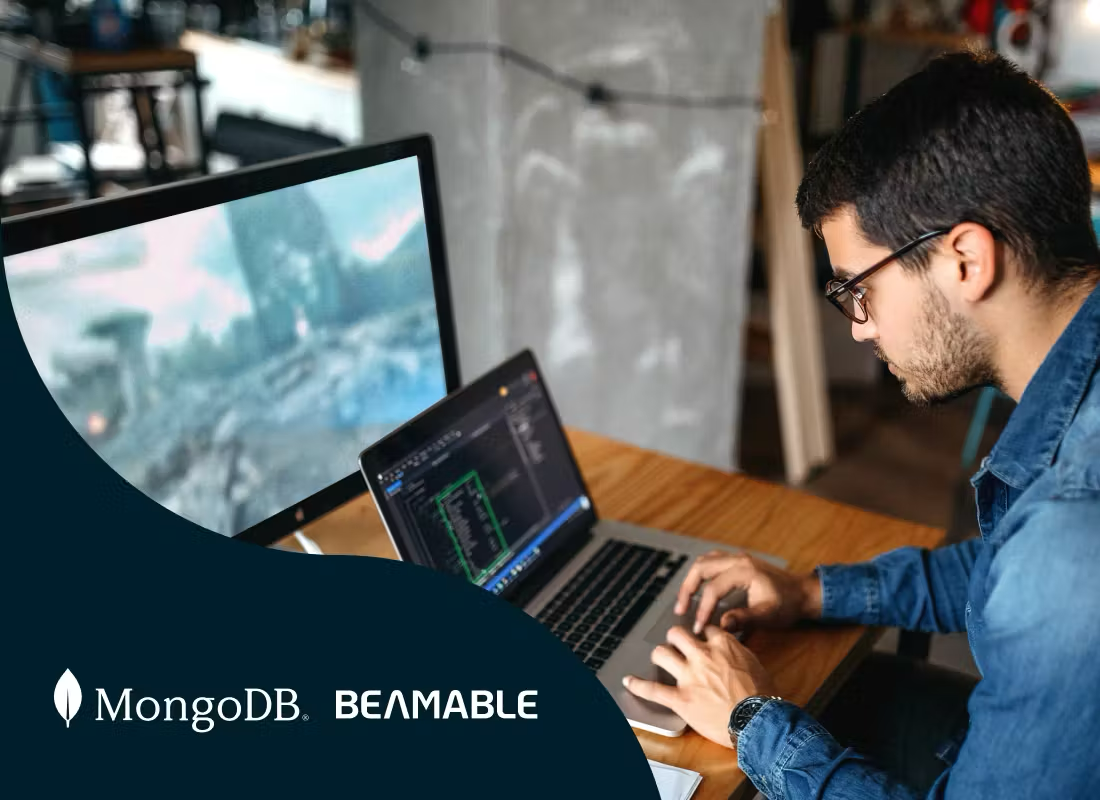Beamable delivers game-changing advantages for development teams
MongoDB Atlas helps gaming development platforms eliminate ‘glue code’ and focus on collaboration, innovation, and monetization.


“The gaming industry is on track to be worth over USD $350 billion worldwide, bigger than every other form of entertainment combined.”
Trapper Markelz
Co-Founder and COO, Beamable
Co-Founder and COO, Beamable

“MongoDB Atlas gives us the ability to scale vertically and horizontally with relatively little effort and without huge operational overheads.”
Ali El Rhermoul
CTO, Beamable
CTO, Beamable

“We have deepened our partnership with MongoDB and developed a new private cloud product that serves as a channel for new customers to activate new accounts as part of their Beamable infrastructure installations.”
Trapper Markelz
Co-Founder and COO, Beamable
Co-Founder and COO, Beamable
Take the next step
Get access to all the tools and resources you need to start building something great when you register today.
.svg)